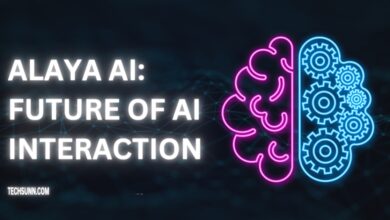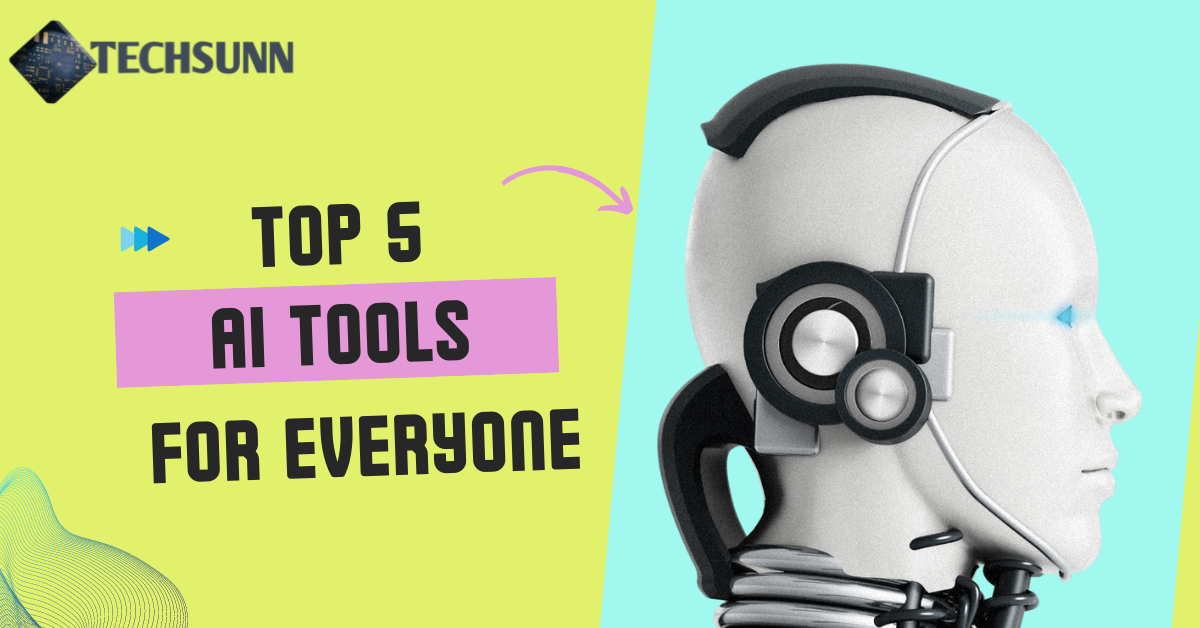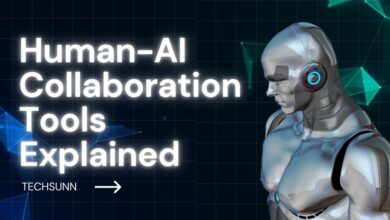Artificial Intelligence in Healthcare: Transforming

Discover how Artificial Intelligence in Healthcare revolutionizes patient care. Explore the transformative power of AI in improving healthcare outcomes.
Artificial Intelligence in Healthcare
Artificial intelligence (AI) is transforming several sectors, including healthcare. With its immense potential, Artificial Intelligence in Healthcare, enhancing diagnostic accuracy, enabling personalized treatment plans, and improving overall healthcare outcomes. This article explores the applications, benefits, challenges, and future trends of AI in healthcare.
Artificial Intelligence in Healthcare: An Overview
Man-made reasoning envelops AI, normal language handling, PC vision, and other cutting edge innovations. In healthcare, AI is being employed in various areas, including diagnostics, drug discovery, patient monitoring, and administrative tasks. By analyzing vast amounts of medical data and learning patterns, AI systems can provide valuable insights and support healthcare professionals in making informed decisions.

Benefits of Artificial Intelligence in Healthcare
The integration of AI in healthcare offers numerous benefits. Firstly, AI algorithms enhance diagnostic accuracy, reducing the risk of misdiagnosis and enabling early detection of diseases. AI-powered imaging techniques can analyze medical images, such as X-rays or MRIs, with remarkable precision, aiding radiologists in detecting abnormalities.
Secondly, AI enables personalized medicine by analyzing patient data, genetic information, and medical records. This allows for tailored treatment plans and optimized medication recommendations, minimizing adverse reactions and improving patient outcomes.
Additionally, AI streamlines administrative tasks, reducing the burden on healthcare staff. Automating repetitive tasks like scheduling appointments, billing, and coding enhances efficiency and frees up valuable time for healthcare professionals to focus on patient care.
Case Studies and Success Stories
Several real-world examples highlight the transformative impact of AI in healthcare. For instance, IBM’s Watson for Oncology analyzes vast amounts of patient data, research papers, and clinical guidelines to provide oncologists with treatment recommendations. This AI system assists doctors in selecting the most effective treatment options and contributes to improved cancer care.
Robotic surgery is another remarkable application of AI in healthcare. Surgical robots with AI capabilities assist surgeons in performing minimally invasive procedures with increased precision and accuracy. These robots offer enhanced dexterity, visualization, and control, reducing the risk of complications and shortening recovery times.
Ethical Considerations and Challenges
While the potential of AI in healthcare is promising, ethical considerations and challenges must be addressed. Data privacy and security are critical concerns when dealing with patient information. Safeguarding personal health data and ensuring secure AI systems are imperative to maintain patient trust.
Bias in AI algorithms is another challenge. If the training data used to develop AI models is biased, the resulting algorithms may perpetuate existing healthcare disparities. Efforts must be made to ensure fairness, transparency, and inclusivity in AI systems, mitigating bias and promoting equitable healthcare.
Read Also: Science’s Medical Device Platform: Challenging Neuralink
Future Trends and Outlook
The future of AI in healthcare holds immense potential. Predictive analytics and machine learning algorithms can help identify patients at risk of developing certain conditions, enabling proactive interventions and preventive care.
AI-powered genomics is an emerging field that combines AI and genetic analysis. By analyzing genetic data, AI can assist in identifying disease risks, developing targeted therapies, and advancing precision medicine.
Furthermore, advancements in natural language processing and virtual assistants may improve patient engagement and access to healthcare information. AI chatbots and voice assistants can provide personalized health advice, answer common queries, and offer support outside traditional healthcare settings.
- Diagnosis and treatment: AI can be used to analyze large amounts of medical data to identify patterns and trends that may be missed by human doctors. This can lead to earlier and more accurate diagnoses, as well as more personalized treatment plans. For example, AI-powered image analysis tools are being used to detect cancer in medical images with greater accuracy than human radiologists.
- Drug discovery: AI can be used to screen large numbers of potential drug candidates for safety and efficacy. This may assist to accelerate drug development and bring novel therapies to market more quickly. AI-powered drug discovery methods, for example, have been used to uncover possible therapies for Alzheimer’s disease and cancer.
- Healthcare administration: AI can be used to automate tasks such as scheduling appointments, processing insurance claims, and managing patient records. This can free up healthcare providers to focus on providing care, and it can also help to reduce costs. For example, AI-powered chatbots are being used to answer patient questions and schedule appointments.
- Patient education: AI can be used to create personalized educational materials for patients about their condition and treatment options. This may assist patients in better understanding their treatment and making informed choices. AI-powered applications, for example, are used to give patients with information about their prescriptions and how to take them.
In a variety of ways, AI has the potential to revolutionise healthcare and enhance patient care. However, there are significant obstacles that must be overcome before AI can be completely incorporated into healthcare. These challenges include:
- Data privacy and security: AI systems require large amounts of data to train and operate. This information can be delicate, and it is vital to guarantee that it is kept secure.
- Bias: AI systems can be biased, which can lead to unfair or inaccurate results. It is important to develop AI systems that are free of bias.
- Cost: AI systems can be expensive to develop and deploy. It is important to find ways to make AI-powered healthcare technologies more affordable.
Notwithstanding these difficulties, the possible advantages of computer-based intelligence in medical care are critical. Man-made intelligence can possibly work on persistent consideration, diminish expenses, and make medical services more open. As man-made intelligence innovation keeps on creating, almost certainly, we will see considerably more imaginative and ground-breaking uses of computer-based intelligence in medical care.
Here are some additional examples of how AI is being used in healthcare today:
- Virtual assistants: AI-powered virtual assistants can provide patients with 24/7 access to healthcare information and support.
- Robotic surgery: AI-powered robotic surgery systems can perform complex surgeries with greater precision and accuracy than human surgeons.
- Wearable devices: AI-powered wearable devices can collect data about a patient’s health and activity levels, which can be used to monitor their condition and identify potential problems early on.
As artificial intelligence innovation keeps on creating, obviously simulated intelligence can possibly reform medical services and work on persistent consideration in various ways.
Conclusion
Artificial Intelligence is transforming patient care by revolutionizing diagnostics, enabling personalized medicine, streamlining administrative tasks, and improving healthcare outcomes. While challenges exist, such as ethical considerations and bias, the benefits of AI in healthcare are vast. By embracing responsible implementation and continuously refining AI systems, we can unlock the full potential of AI to revolutionize patient care and create a healthier future for all.




